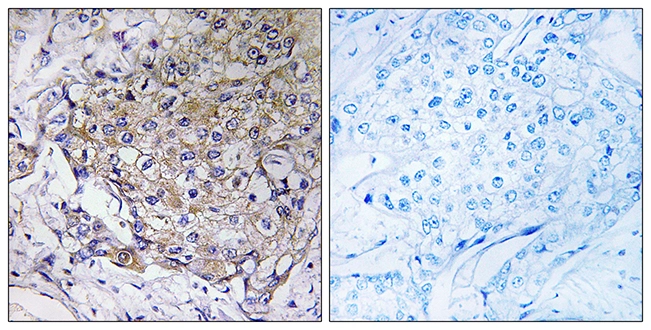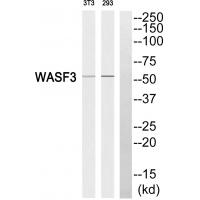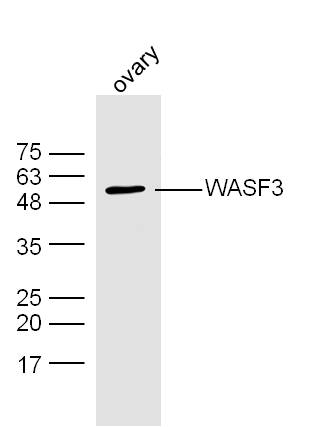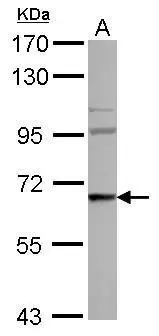
IHC-P analysis of human breast carcinoma tissue using GTX87825 WASF3 antibody. The picture on the right is blocked with the synthesized peptide.
WASF3 antibody
GTX87825
ApplicationsImmunoHistoChemistry, ImmunoHistoChemistry Paraffin
Product group Antibodies
ReactivityHuman
TargetWASF3
Overview
- SupplierGeneTex
- Product NameWASF3 antibody
- Delivery Days Customer9
- Application Supplier NoteIHC-P: 1:50~1:100. *Optimal dilutions/concentrations should be determined by the researcher.Not tested in other applications.
- ApplicationsImmunoHistoChemistry, ImmunoHistoChemistry Paraffin
- CertificationResearch Use Only
- ClonalityPolyclonal
- ConjugateUnconjugated
- Gene ID10810
- Target nameWASF3
- Target descriptionWASP family member 3
- Target synonymsBrush-1, SCAR3, WAVE3, actin-binding protein WASF3, WAS protein family member 3, WASP family Verprolin-homologous protein 3, protein WAVE-3, verprolin homology domain-containing protein 3, wiskott-Aldrich syndrome protein family member 3
- HostRabbit
- IsotypeIgG
- Protein IDQ9UPY6
- Protein NameActin-binding protein WASF3
- Scientific DescriptionThis gene encodes a member of the Wiskott-Aldrich syndrome protein family. The gene product is a protein that forms a multiprotein complex that links receptor kinases and actin. Binding to actin occurs through a C-terminal verprolin homology domain in all family members. The multiprotein complex serves to tranduce signals that involve changes in cell shape, motility or function. A pseudogene of this gene have been defined on chromosome 6. Alternative splicing results in multiple transcript variants [provided by RefSeq, May 2014]
- ReactivityHuman
- Storage Instruction-20°C or -80°C,2°C to 8°C
- UNSPSC41116161







